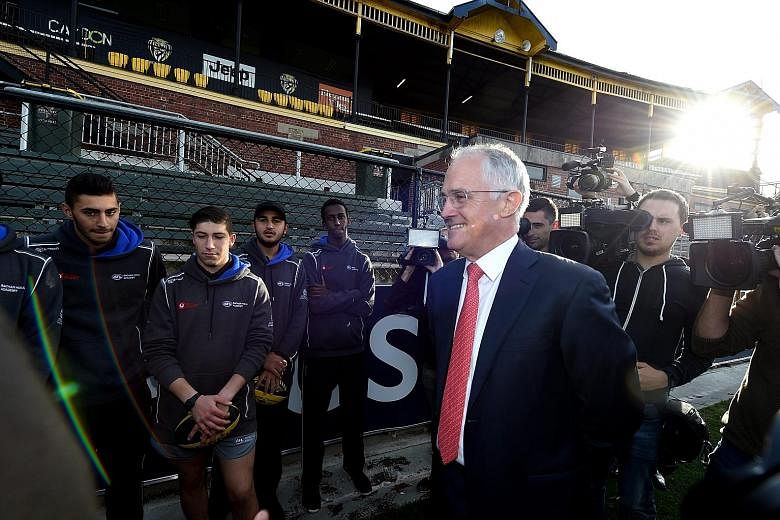When Australians vote on July 2, there will be almost a million people - many aged 18 to 24 - whose voices will not be heard.
Despite Australia being one of only about 20 countries with compulsory voting, data shows that about 955,000 people are not enrolled to vote.
The "missing" voters include half of all 18-year-olds and a quarter of all 19-year-olds, prompting claims that younger Australians are apathetic and uninterested in politics. Yet their vote could change the election outcome, with polls showing the ruling Coalition roughly even with the Labor opposition party.
The Australian Electoral Commission said about 347,000 of the missing voters were aged 18 to 24. About 15.5 million people are registered to vote in July.
Most analysts believe the lack of enrolments would likely benefit the coalition, with young people tending to vote for Labor and the Greens.
However, Ms Skye Riggs, the founder of Y Vote, which encourages younger people to vote, said young people were not a bloc and do not all share a natural preference for progressive or left-leaning parties. She noted many younger voters have been shown to vote in line with their parents' preferred party.
"I don't think young people all vote the same way," she told The Straits Times. "Young people are not aligned to parties in the same way that previous generations may have been. They are open to being compelled to vote based on issues they care about."
She said key issues included education, climate change, housing affordability, legalising same-sex marriage, jobs and taxation.
A Fairfax-Ipsos opinion survey last month found 32 per cent of 18- to 24-year-olds favour the Greens, compared with just 14 per cent support among all voters. Among people in the same age group, the poll indicated support for Labor and the Coalition at 33 per cent and 25 per cent respectively, compared with 32 per cent and 44 per cent among all voters.
Perhaps not surprisingly, Labor made a strong appeal this year to younger people to vote. Enrolments for the elections closed on Tuesday.
Voting in Australia is compulsory for people aged 18 and above, though enrolling can be done from age 16. Those who fail to enrol or vote must pay a A$20 (S$20) penalty unless they have a valid reason.
But the so-called youth vote - and the reasons for the failure of many to vote - can be difficult to pin down.
Some younger Australians say they are put off by the major parties or think their votes will not count.
At a youth community centre in western Sydney earlier this month, Mr Thomas Condren, 18, said he had little trust in politicians and had no intention of enrolling to vote.
"I just reckon all the governments are a bunch of liars," he told ABC News on May 12.
Others said they saw voting as a civic duty. Ms Victoria Silton, a 20-year-old student at the Australian National University in Canberra, said younger voters may sometimes feel disenfranchised but failing to vote only ensured they were more disconnected.
"You kind of feel your vote doesn't matter, (but) if you sit out, then that perpetuates the cycle, I think," she told The Canberra Times on Monday.
Analysts say there are mixed reasons for the low youth turnout and that some younger people speak out on social media even if they do not vote.
Ms Riggs, 30, said she decided to form the pro-voting advocacy group after the 2013 elections, when she felt uninspired by the rival party leaders.
"I didn't feel like voting (in 2013) and I wondered how many Australians feel this way," she said, adding that she found that politicians were far removed from what people wanted at a community level.
"We have a political system in place. We don't need to fight for democracy, but we need to make it work better."

